Humanism And The Government
With a presidential election looming over our heads, I thought this was a good piece of the influence of government on our lives and our culture. The entire article will not fit in the space for the bulletin. A link is provided from our website.
by Allan Turner
This special issue on secular humanism proves, if nothing else, that those who have been speaking and writing on this subject no longer sit as “lonely birds on the roof.” I am happy to share with you the fruit of my study of this subject. It is inevitable that any study of secular humanism would cause us to think about the influence it may be having on our government. I think you may find that it has had a much stronger influence than you had suspected.
When we think of the federal government, we normally think of a vast bureaucracy; so vast, in fact, that it is almost beyond comprehension. But, in reality, we are only talking about 537 elected and 9 appointed men and women. Surprised? Well, let’s count them: I president, I vice president, 100 senators, 435 representatives, and 9 Supreme Court justices. As ours is a democratic republic, these 546 people are the government; the vast bureaucracy, in theory, simply supports these 546 people in doing whatever it is government is supposed to do.
Traditionally, government (at least our government) has been thought to exist for the “common good” of the citizenry. Obviously, if government is to provide for the common good of the people, then it must have an opinion as to the substance of that common good. As secular humanism has become quite pervasive in our society, we should expect to see conflicts arising in government as it attempts to provide for the common good of a people who are sharply divided between a biblically based world view and a secular humanist world view. When we use the term “world view,” we are speaking of the grid through which we view the world. Naturally, there will be a sharp contrast between these two world views when the government attempts to legislate morality (i.e., homosexuality, abortion, marriage, divorce, capital punishment, pornography, infanticide, euthanasia, etc.)
It is my opinion that the conflict between these two world views is the most fundamental and decisive issue of our time. The issue is one quite common to New Testament Christians, who seek after the New Testament order, for it is one of authority: Is God still ruling in both the religious and secular affairs of man, or is man totally autonomous, answerable only to himself and the institutions he has created? These two alternatives underlie most of the major and minor conflicts of our day. Contrary to what some may think, secular humanism is not the “brand name of some organizationally identifiable movement. It is, rather, an ‘ideology’, i.e., an all-comprising, all-permeating world view, ethos and attitude. It is the antithesis to religion” (Klaus Bockmuehl, “Secularism and Theology”, Crux Magazine, June, 1983, p. 7).
Let us get, then, to the subject at hand. The first and last paragraphs of the Declaration of Independence speak of God. U.S. Supreme Court Justice, William O. Douglas, as recently as 1952, said: “We are a religious people whose institutions presuppose a Supreme Being” (Zorach v. Clauson, 343 U.S. 306). 1 believe it is beyond dispute that our legal system in America has traditionally reflected biblically based principles. But this viewpoint is quickly changing. So quickly is the change occurring, that some have insisted that the “anti-God religion of Secular Humanism” is already the favored religion of the state (Claire Chambers, The Siecus Circle, Statement appearing on the flyleaf by Charles Rice, Professor of Law, Notre Dame Law School).
Thinking of secular humanism as the official religion of this nation may not be as far-fetched as it may, at first, seem. In 1961 in the case of Torcaso v. Watkins, Justice Hugo L. Black observed: “Among religions in this country which do not teach what would generally be considered a belief in the existence of God are Buddhism, Taoism, Ethical Culture, Secular Humanism and others.” In this case the Court declared itself neutral of any religious influence when it said that “neither a State nor the Federal Government can constitutionally aid all religions as against non-believers, and neither can aid those religions based on a belief in the existence of God as against those religions founded on different beliefs. “This newly found “neutrality,” or tightrope act, has forced the Court to pretend that the existing legal system is not subject to any religious influence.
In declaring themselves free from any religious influence, they have opted for the self-autonomous religion of secular humanism, and have discarded any notion of a Law above the law. On its face, this is a clear violation of The First Amendment, which prohibits the establishment of a state favored religion, if “religion” in the amendment means “ideological system,” as the secular humanists argue it does. Of course, the use of the term “religion” in the First Amendment has been explained by those who framed it as a prohibition against a national religion or the placing of any one religious sect, denomination, or tradition into a preferred legal status. And as recently as 1961 it was understood by the Court that way. This was articulated by Justice J. Frankfurter, who said “the immediate object of the First Amendment’s prohibition was the established church as it had been known in England and in most of the Colonies” [emphasis added] (McGowen v. Maryland, 366 U.S. 420, 465). It is interesting to note that in the 1963 Schempp case, which outlawed the reading of the Bible, or its use as a religious document, in the public schools, the Court said that the use of the term “under God” could continue to be used in the schools as long as everyone understood that it actually has no “religious purpose or meaning.” The term “under God” in the pledge of allegiance, according to Justice William Brennan, “may merely recognize the historical fact that our Nation was believed to have been founded ‘under God… [emphasis added] (School District of Abington Township, Pa. v. Schempp, 374 U.S. 203, 303-04). At the beginning of this rather long paragraph we mentioned that the founding fathers recognized this nation’s dependence upon God. We have now arrived at a point in this nation’s existence where its historical founding “under God” is considered by the United States Supreme, Court as nothing more than an antiquated shibboleth to appease the masses.
The legislative branch of our government has been charged with policy making, the executive branch has been charged with carrying out those policies, and the judicial branch as been charged with making sure the other two branches do not go beyond the Constitution in creating and implementing those policies. Nowhere in the Constitution is the Supreme Court given the authority to make policy, but this has been occurring now for a generation (ever since Earl Warren became Chief Justice of the U.S. Supreme Court). Instead of a democratic republic, for all practical purposes, we are a people ruled by judicial fiat. What some who sit on the Supreme Court seem to think is their right to carry on their own “Constitutional Convention,” we, the people, recognize as nothing less than tyranny.
To read the rest…Humanism And The Government
Guardian of Truth XXVIII: 14, pp. 428-430
July 19, 1984



